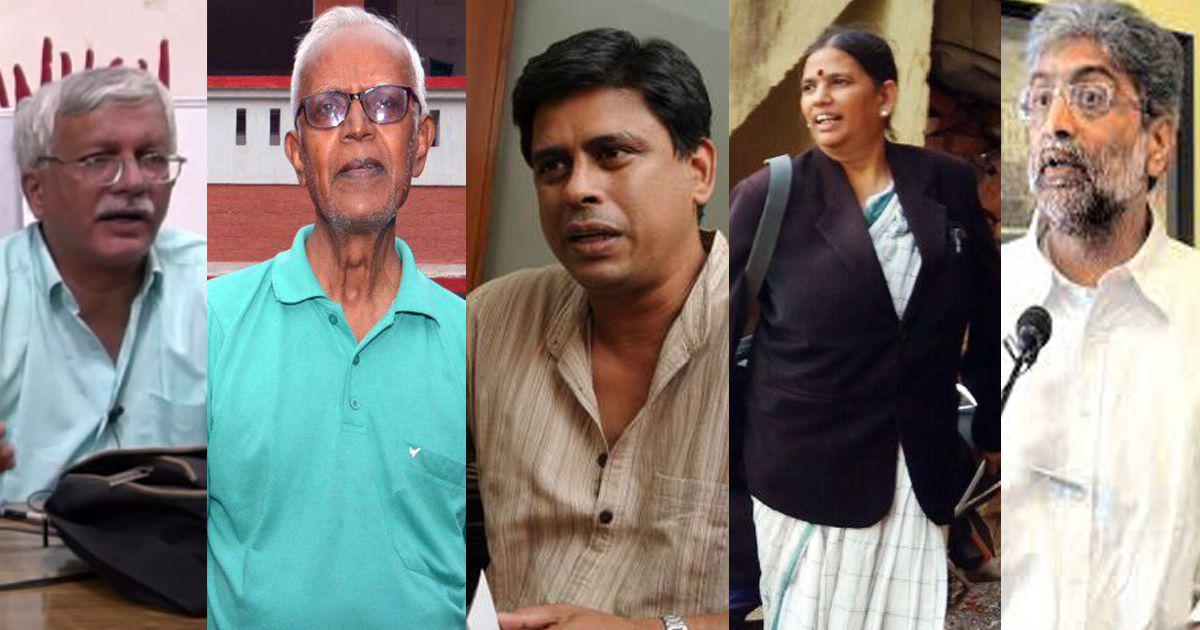
The ongoing impeachment of ex-President Trump brings into focus a little-known or little-discussed aspect of political life. What is to be done when an elected government conspires against its own people? In other words works to subvert the Constitution it is supposed to uphold?
It does not do so openly and publicly, for it will then be immediately held to account by the people. It has to do so in a furtive clandestine manner. That is, it has to enter into a conspiracy. In order to evade probing eyes it has to raise a continuous furore about evil conspiracies against the state and keep people on their toes.
Dredging out a rubbish-heap of allegations and innuendos and flooding the public domain it has to persuade people there are such conspiracies taking place under their very noses. Indeed it is driven by the logic of its own devious logic to manufacture conspiracies. In a recent survey of Americans who voted Republican in the last presidential election it was found that more than 40 percent of the sample believed in the bizarre QAnon theory which held that a troop of powerful people who are sexual predators on children are engaged in a deep secret conspiracy against the American state. They apparently maintain democratic appearances!
It appears that in most countries taking an authoritarian turn these trends are increasingly visible. Every step towards denudation of democracy and imposition of authoritarianism hold up the pretext of a combination of external foes and internal agents conspiring against the interest of the state, the putative democratic state.
This involves not only pointing to evidence in the form of some incident or other, but also to actively faking and forging documents that will pass the scrutiny of courts that normally do not and cannot imagine such a possibility.
The exhaustive report from an American forensic laboratory on the evidence presented to the court by NIA is most disturbing to say the least. Clearly a Forensic laboratory with professional standing among customers can be relied upon to arrive at its conclusions on a disputed matter with due rigour and objectivity in examination of data.
How is it then that India’s top investigating agency on matters of national security came to use such unreliable and allegedly faked data to build up its case against prominent citizens? Either the NIA itself has been misled by certain as yet unknown forces or it has itself succumbed to pressures from certain quarters within the state into this misadventure that has caused so much distress to prominent citizens and general alarm in society. Either way it ought to wake up both the citizens at large and the higher courts.
I venture to think that since the main basis of the chargesheet against the accused in this case happens to be the planted evidence in Wilson’s laptop it stands to reason that the exposure knocks the bottom out of the chargesheet. Therefore the reasons for denial of bail to the accused may also no longer hold any force. Defaming the country can amount to sedition.
Reverting to the allegation of use of planted evidence in the Bhima Koregaon case it is intriguing that NIA the highest security agency in India has flatly denied that it is using evidence that had been insinuated into Rona Wilson’s computer through use of a malware known as Netwire. NIA cites in its support the report of NFSL of Pune confirming there is no evidence of malware while the President of Arsenal Forensics, a reputed forensic lab with high professional standing, says that a person with ‘barest minimum technical expertise’ can find evidence of malware (Interview in Outlook magazine).
The court has to deal with two experts and decide which to prefer as truer to the mark. Since such use of intelligence is of recent origin and too sophisticated for non-experts this is a tricky situation, rather like the fabled story of King Solomon having to decide between two women each claiming the same baby as her own!
Like most people in such cases the judges have to rely on expert opinion, and as it happens in some cases, two experts clash. But fortunately, it seems that here experts don’t have to go by ‘circumstantial evidence’ as the police claim in the case of Disha Ravi. This happens to be a technical matter which can be pretty precisely solved through scrutiny of traces on software footprints on Wilson’s computer and is available on clone copies. One of the two experts must be wrong.
That has got to be settled by a third expert or team of experts examining the work of the two previous experts. And this third party must be above all suspicion of conflict of interest.
The matter may not be kept hanging as a lot, a hugely critical lot, depends on its outcome. Otherwise such cases may snowball into dimensions where anybody with any significant political opinion different from that of the government gets nabbed and is hustled behind bars. That, it hardly needs saying, will put an end to the state our constitution has created, the state we have known since independence.
*The author is a highly respected Assamese intellectual, a literary critic and social-scientist from Assam. Views expressed are the author’s own.
Other pieces by Dr. Hiren Gohain:
